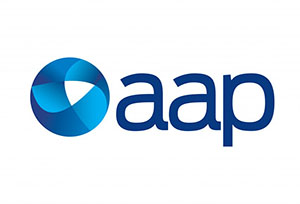
AUCKLAND (Radio NZ International/Pacific Media Watch): The reporting on Papua New Guinea issues is said to have gone downhill in the year since the Australian Associated Press closed its PNG bureau.
Academics and local media claim the few reports that make it to Australian media are sometimes innacurate and lack context.
Radio New Zealand International's Leilani Momoisea reports:
In October last year, the editor-in-chief of AAP, Tony Gillies, announced the decision to close its office in Papua New Guinea after a 60-year presence there.
Gillies says in a practical sense there have been no difficulties in covering PNG issues since closing the PNG bureau. He says they use a combination of freelancers, global agency partnerships and former PNG correspondent staff to keep abreast of developments.
TONY GILLIES: A combination of those three things has enabled us to provide a coverage that our subscribers have seen as adequate, I guess. I concede that it's not always as good as having someone on the ground but for the purposes, for our needs at least anyway, it seems to be working OK.
The editorial chief-of-staff at the PNG Post-Courier, Todagia Kelola, says since the AAP left, the Australian audience is likely to be missing out on stories that would have previously been covered. He says as an example, Australia is a big player in PNG in terms of aid, and the new police assistance programme:
TODAGIA KELOLA: When AAP was in the country they basically questioned those Australian federal police who are here assisting in the Papua New Guinea constabulary, 'Are they performing?' 'Is it worth the Australian tax-payers [money]?' All these questions now, the PNG media are really not interested in addressing, or finding out.
He says in a nutshell, the Australian government is no longer held to account for it is activities in PNG as it once was. Tony Gillies says that's always a risk when closing a bureau, but it is not all on AAP, there are other media that would play a part in that.
The director of the Pacific Media Centre, Professor David Robie, says it is clear that things have deteriorated since the AAP closure.
DAVID ROBIE: Of course the major crises, for example, developments with asylum seekers and so on, they still get intensive media coverage, but largely it's a sort of a parachute journalism type approach now. Whereas before, when AAP were operating, you were getting fairly comprehensive coverage of what is the most complex country in the Pacific.
Research Associate at the Australian National University, Bill Standish, adds that AAP reporters on the ground had been providing valuable context and interpretation.
BILL STANDISH: A lot of important political news out of Papua New Guinea does not seem to get into the press...but there's no background or context in the very little news that hits the main media in Australia.
Todagia Kelola notes that of the PNG stories that do get through to Australian media, some are inaccurate and lack the full picture.
TODAGIA KELOLA: Australian media, they just get a phone in Australia and call up a villager, or call somebody that lives next to Manus asylum seeker centre and just get a story. Whereas when AAP was here, they go on the ground, they see it with their own eyes and get factual stories. Whereas nowadays some stories that have aired in Australia, are just on hearsay.
The editor-in-chief of AAP, Tony Gillies, says it was a difficult decision to close down the PNG bureau, but it was the right call at the time. He says only time will tell if it was the right decision in the long run.
This work is licensed under a Creative Commons Attribution-NonCommercial 3.0 New Zealand Licence.




